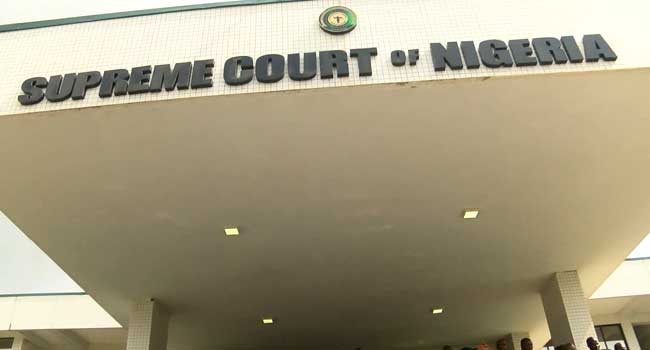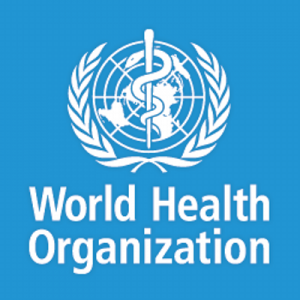
8 May 2020. Premium Times: The National Judicial Council on Thursday released guidelines for court proceedings to reduce the spread of COVID-19.
The guidelines issued by the NJC committee headed by Justice Olabode Rhodes-Vivour are contained in a statement made available to PREMIUM TIMES by the council’s Director of information, Soji Oye.
The NJC had at its first virtual meeting held on April 22 and 23 set up a 10-member committee led by Mr Rhodes-Vivour to develop a practical strategy for how courts would continue to function during the COVID-19 pandemic.
On Monday, the Chief Justice of Nigeria, Tanko Muhammad, directed all courts to stop sitting pending the issuance of the NJC’s guidelines for the reopening of courts.
Guidelines
With the title, “The National Judicial Council Guidelines for Court Sittings and Related Matters in the COVID-19 period, ” Mr Oye said the CJN, in a corresponding circular with Reference Number NJC/CIR/HOC/II/660, urged all heads of federal and state courts to abide by the guidelines in the formulation of their rules and directives.
“Heads of court shall have the primary responsibility of ensuring compliance of judicial officers, over whom they superintend, with the provisions of this guideline.
“Heads of courts shall liaise with relevant security agencies to ensure that entrances to court premises are well manned by security personnel and entry into the premises are regulated in a manner that guarantees and enforces the minimum two-meter (six feet) distance between persons as it relates to all entrants into the premises.
“The courts shall ensure that all security personnel who work in the court premises and in particular the security personnel who man the entrance(s) to the court premises are well informed on COVID-19 including, in particular, the methods of its spread, its basic symptoms, how to prevent its spread, etc,” it said.
The guidelines added that heads of courts should ensure that all security personnel including those attached to judicial officers and courtrooms should be well-kitted and supplied with disposable gloves, facemasks, and hand sanitisers.
It also listed guidelines that should apply with regard to admission of persons into the court premises.
“Security personnel at the entrance of the court premises shall be equipped with temperature monitors for testing and determining the temperature of each visitor to the court premises.
“They should be trained in the use of the temperature monitors, and visitors must be shown their temperature readings on the monitors before their admission into the court premises.
“Every person wishing to go into the court premises, without exception, shall be subjected to the temperature monitor reading for the determination of his or her body temperature,” it said.
It is also in the guideline that anyone who refuses to submit himself or herself for the temperature testing should politely not be allowed into the court premises and advised to leave the entrance immediately.
“Heads of courts should procure advice of health experts on the temperature levels that warrant concern and be indicative of a person with fever (high-temperature threshold).
“The security personnel at the court entrance(s) must be trained in that regard.
The guidelines added that any of the court visitor whose temperature reads high or who is coughing during the entry protocol should not be allowed into the court premises.
“Any visitor to the court premises, who has a high temperature, based on the temperature monitor reading at the entrance to the court or who is coughing while going through the entry protocols, should be politely advised to seek immediate medical assistance and refused entry into the court premises.
“Security personnel at the court premises shall further ensure that only persons with facemasks are allowed entry into the court premises, without exception.”
It said that judicial officers and legal counsel must be exemplary in that regard and must ensure that their support personnel would comply strictly with the requirement.
“At no time and in no circumstance should anyone, while within the court premises, including inside courtrooms, offices and the chambers of judicial officers, not wear a facemask.”
It further stated that visitors coming into the court premises must maintain social and physical distance and avoid congregations or assembly of more than 10 persons within the court premises, excluding courtrooms.
It also said that court-related businesses that could be transacted without physical visits to the court premises should be transacted through available alternative channels.
“Each court premises must have pasted on or flashing from their respective notice boards the dos and don’ts by visitors to the premises vis-à-vis COVID-19. Those notices and the notice boards must be placed at strategic and visible locations within the court premises and at the entrances thereto.
“The courts must ensure the availability of hand sanitizers in bottles and/or dispensers, liberally mounted and placed in strategic and easily noticeable and accessible locations within the court premises for the use of all visitors and court personnel.
“The court premises including courtrooms, registries, offices and the chambers of judicial officers should be periodically disinfected in such frequencies as the Heads of Courts may determine.”



